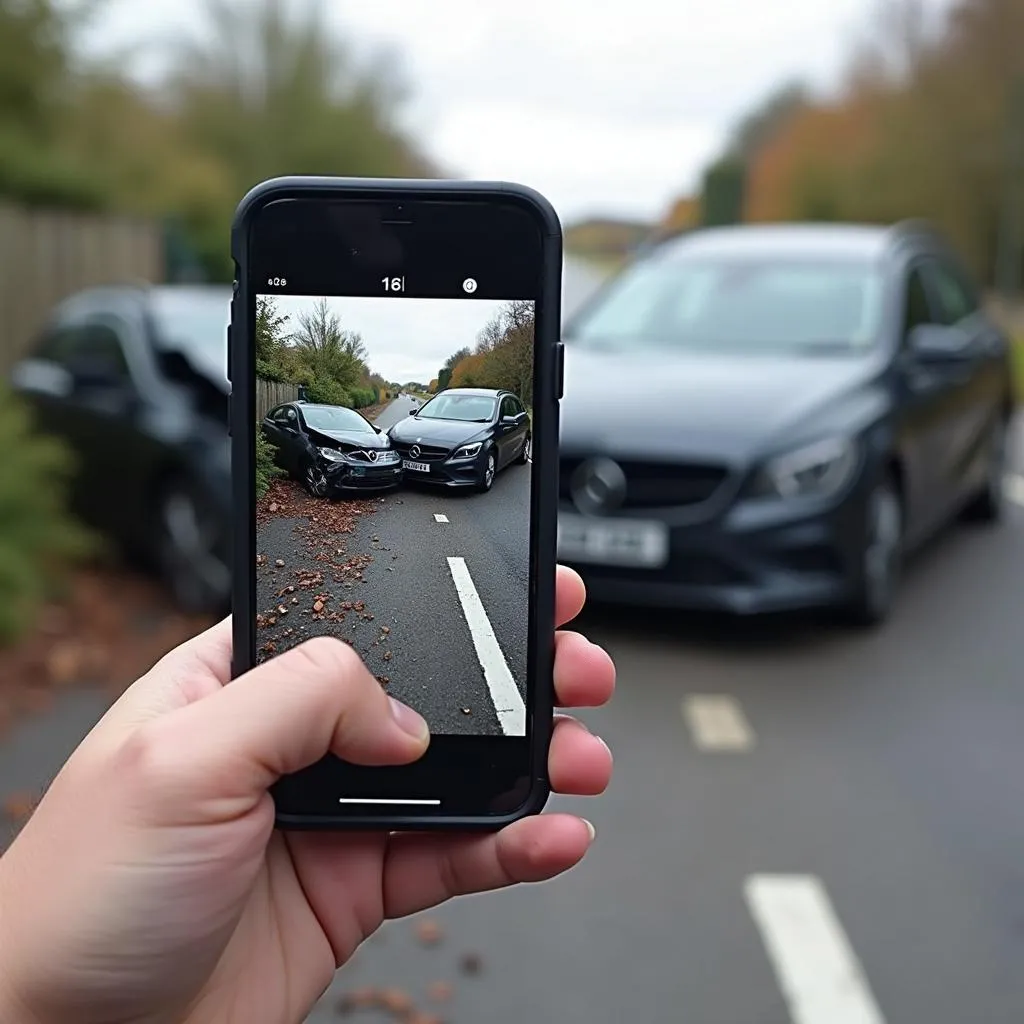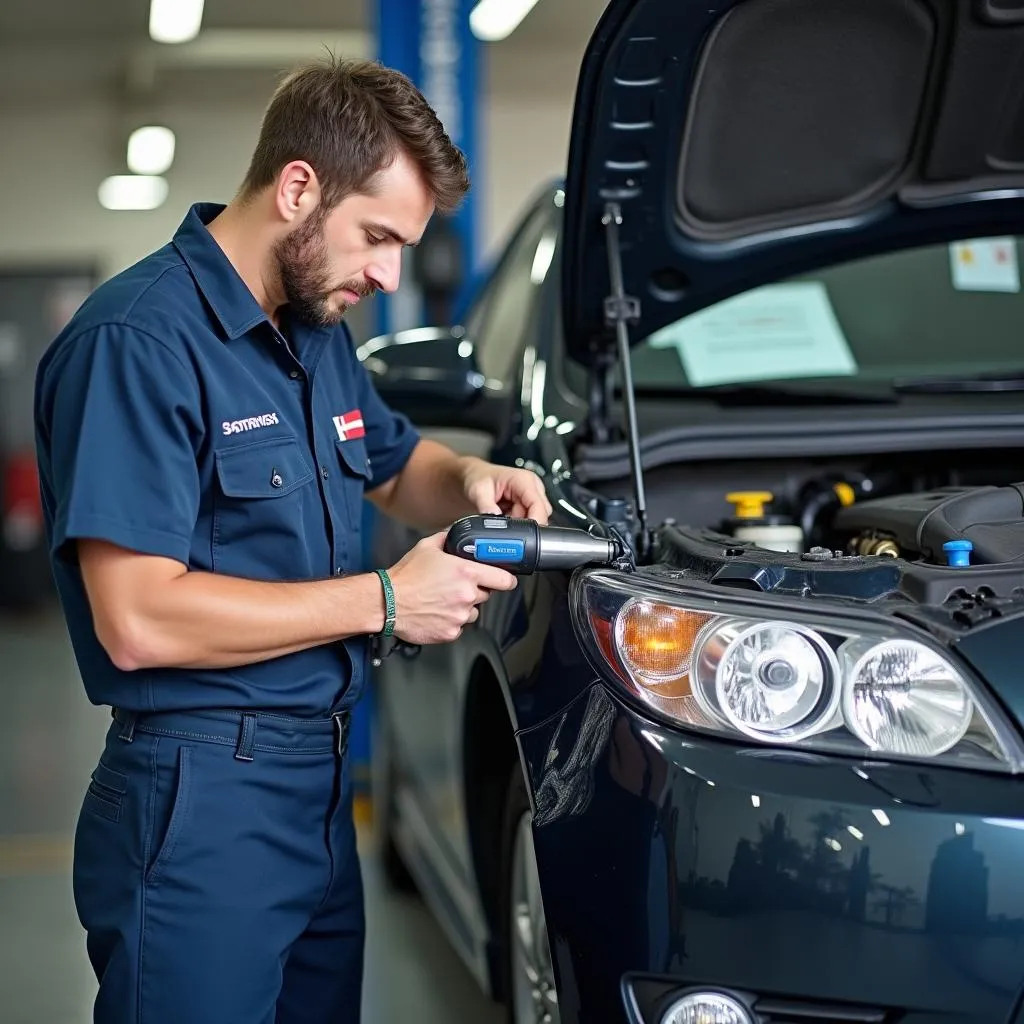The screech of tires, the shattering of glass, the sudden jolt – a car crash, even a minor one, can leave you shaken and unsure of what to do next. Whether you’re a seasoned driver or new to the road, knowing the right steps to take after an accident can protect your well-being, your rights, and your future.
Imagine this: you’re driving home from work on a busy street in Chicago, the evening rush hour in full swing. Suddenly, a distracted driver runs a red light, slamming into the side of your Honda Civic. Your heart races as you realize what’s just happened. What do you do next?
Understanding the Aftermath: More Than Just Dents and Scratches
From a mechanic’s perspective, a car crash is more than just a fender bender. It’s a complex event that can impact multiple systems within your vehicle, some visible and others hidden. Electrical systems, often overlooked, can sustain damage affecting safety features like airbags and sensors.
Economically, car crashes represent a significant burden. According to a study by the National Highway Traffic Safety Administration (NHTSA), the economic cost of car crashes in the U.S. reached $340 billion in 2019 alone. This includes medical expenses, property damage, and lost productivity.
Your Post-Crash Game Plan: Navigating the Immediate Aftermath
Here’s a breakdown of what to do immediately following a car accident:
1. Safety First, Always
- Check for injuries: Your well-being and that of any passengers are paramount. Call 911 immediately if anyone is hurt.
- Move to safety: If possible and safe to do so, move your vehicle to the side of the road, away from traffic. Turn on your hazard lights to alert other drivers.
2. Document Everything
- Gather information: Exchange information with all parties involved, including names, contact details, driver’s license numbers, insurance information, and vehicle details.
- Take photos and videos: Document the scene thoroughly, capturing damage to all vehicles involved, the accident location, and any visible injuries.
 Documenting a car accident scene
Documenting a car accident scene
3. Report the Accident
- Contact the police: Even for minor accidents, it’s crucial to file a police report. This official document provides a record of the incident and can be invaluable for insurance claims.
- Notify your insurance company: Report the accident to your insurance provider as soon as possible. Provide them with accurate details and any documentation you’ve gathered.
4. Seeking Medical Attention
- Don’t downplay injuries: Even if you feel fine, it’s wise to get checked out by a medical professional. Some injuries may not be immediately apparent.
Beyond the Basics: Protecting Yourself Legally and Financially
Navigating the legal and financial implications of a car crash can be complex:
1. Understanding Your Rights
- Consult with a lawyer: If you’ve sustained injuries or significant property damage, it’s advisable to seek legal counsel. A Houston car accident lawyer can guide you through your rights and options.
- Beware of quick settlements: Insurance companies may offer a quick settlement, but it’s essential to understand the full extent of your damages before accepting.
2. Repairing Your Vehicle
- Choose a reputable repair shop: If your vehicle requires repairs, opt for a trusted mechanic specializing in your car’s make and model.
- Consider OEM parts: Using Original Equipment Manufacturer (OEM) parts can ensure the quality and compatibility of repairs, especially for vital systems.
 Mechanic inspecting a damaged car in a repair shop.
Mechanic inspecting a damaged car in a repair shop.
Frequently Asked Questions About Car Accidents
What if the other driver doesn’t have insurance?
Uninsured or underinsured motorist coverage is crucial. It protects you if the at-fault driver lacks sufficient insurance.
Should I move my car after an accident?
If possible and safe, move your vehicle to a safe location. However, prioritize safety and call for help if you cannot move the car.
Do I need to see a doctor even if I feel fine?
Yes, it’s always best to get checked out by a doctor. Some injuries, like whiplash, may not be immediately apparent.
More Questions? We’re Here to Help!
This guide provides a general overview and shouldn’t replace professional legal or medical advice. Remember, each accident is unique, and specific circumstances may require tailored guidance.
Need help finding the right diagnostic tool for your European car? We can help! Contact us on Whatsapp at +84767531508 for expert advice and assistance.
If you’re interested in learning more about car safety, check out our article on The Safest Cars on the Road.
Remember, being prepared can make all the difference in a stressful situation. Stay safe on the roads!


